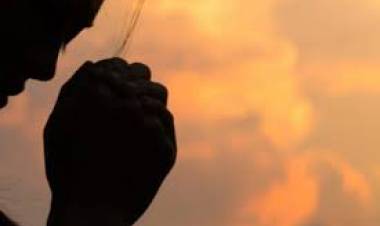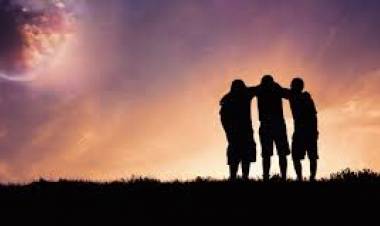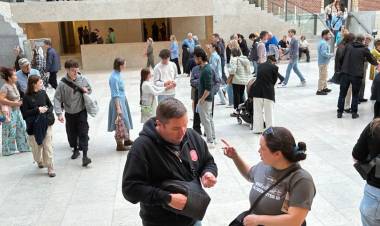Homeless at Christmas
I can only imagine the scene: a terrified Joseph—“How do I explain all this?” An overwhelmed Mary—“Why me, Lord?" The story of redemption, with its mysterious and small beginnings to its marvelous and great impact, changed history. Hence, the greeting “Merry Christmas” either spells peace or offense. It is not surprising, for America has become a strange blend of promoting free speech while at the same time being the most easily “offended” culture.
That aside, aren’t Mary’s and Joseph’s questions still the two constant queries because of the Christmas story? How do we explain the gospel message with the presence of the miracle and the shock of such a message, which we are commissioned to treasure in these earthen jars? At least the shepherds were heralded by angels so there was the visible supernatural. The magi were guided by a phenomenon that was momentous in its dramatic disclosure. We, however, are left with only natural means to speak of this supernatural event. But I ask, is the difference of the task really that drastic?
My colleague Vince Vitale has a great line: If this world came from nothing, the naturalist also has to explain a virgin birth. The late paleontologist Stephen Jay Gould made the comment that if you roll back the scroll of time, this world would never happen again. Well! There’s your miracle as well, but its specialists are called naturalists.
And who are these naturalists? Men and women with designed brains and designed arguments to assure us that there is no design and that we are here by accident. So as much as the skeptic mocks the virgin birth and fights the miracle, he or she smuggles in one of his own and uses designed arguments to boast that our existence is an accident. As much as he or she fights the moral argument, she has no scientific explanation of why we ought to be moral in our conclusions.
And so it is that on Christmas Day the ultimate miracle took place in fulfilling all the prophecies of the virgin birth: the place of the birth, the falling apart of Rome, and the dramatic message of God’s eternal plan ultimately carried through human lips. God is the grand storyteller of all.
It is not surprising that the first question the disciples asked Jesus was, “Where do you live?” To us in the West, that is an amazing question! It would have been more natural from our perspective for the disciples to have asked Jesus what kind of business he was in. In the West, one’s job informs every one of one’s status and possible net worth. However, in the East, where you live tells everyone who your parents are and hence, your status. Ironically, even in the West we insult someone’s lineage when we wish to really demean them. So our roots say a lot about whether we have any wealth or status to boast about. Our homes are important.
Jesus had “stand-ins” for parents with an extraordinary faith. Nazareth was not the zip code you bragged about. His father was a carpenter and not his biological father. His mother was the bearer of that which was conceived by the Holy Spirit, a one-time happening to explain a one-time happening—why we are here on earth in the first place. This is the event that explains all other events, the “sonlight” shining truth upon a dark world.
That is why Jesus’s answer to Nathanael’s question of where he lived is as profound as can be: Come and see. Then Jesus surprised him even further, disclosing Nathanael’s own heart to him and showing him what lived within him. Still reeling from that disclosure, this would-be follower was not ready for the next pronouncement. Jesus said, “You are surprised about what I told you about you; you will be even more surprised as you see the heavens opened and angels ascending and descending on the Son of Man.” In effect, “That will tell you about me.”
That statement had to stir Nathanael’s soul because he would have recognized the same dream Jacob had long before when he fell asleep running from his father’s home and dreamed of angels ascending and descending a ladder and above it standing the Lord. When Jacob woke up, he called the place “Bethel,” the house of God. Jacob was running from his father's house for fear of retribution. Jesus left his father’s house to spare us from our retribution. Jesus pointed to the eternal Bethel, the house of God, as his home. That was his address, his Father’s house. What an answer to the question, “Where do you live?” Talk about a street address!
His house was the house of God. Now, from Bethel (the house of God) to Bethlehem (the house of bread) is the ultimate blend of the spiritual with the material. The Word has become flesh to dwell among us, Emmanuel. That is what Christmas is all about, home and the bread of life. That’s how we find intelligent life. Without Christmas, we are the real aliens. We don’t need to go to other planets to find them. Without the incarnation, we are an unvisited planet. With him, we know we are sojourners. Without him, we hunger constantly for something that can satisfy.
So the songwriter said it well:
O holy Child of Bethlehem
Descend to us, we pray
Cast out our sin and enter in
Be born to us today
We hear the Christmas angels
The great glad tidings tell
O come to us, abide with us
Our Lord Emmanuel
The last time I was in Bethlehem, I was told that Friday is the deadliest day of the week all year round, when young men come out of their Friday prayers with buckets of rocks for throwing at anyone of a different faith. Blood is on the streets at sunset each Friday in Bethlehem, each side claiming it as a “homeland.”
If only we would stop and think of Bethlehem two thousand years ago. That also led to a bloody Friday. But it was only one death—on a cross. The Rock of Ages was crushed for us in an offer of peace. He inflicted no wounds because he was wounded for us. There is no pelting of stones, just a scattering of benedictions. He left his home above to show us the way to a peace that he alone can give, when we make our hearts his home. He beckons us to the eternal Bethel and the eternal “lehem,” bread of heaven. So as we smell the aroma of a delicious meal, remember it’s merely a morsel compared to the banquet that awaits us in his presence.
G.K Chesterton reminds us of this in his poem “The House of Christmas”:
There fared a mother driven forth
Out of an inn to roam;
In the place where she was homeless
All men are at home.
The crazy stable close at hand,
With shaking timber and shifting sand,
Grew a stronger thing to abide and stand
Than the square stones of Rome.
For men are homesick in their homes,
And strangers under the sun,
And they lay their heads in a foreign land
Whenever the day is done.
Here we have battle and blazing eyes,
And chance and honor and high surprise,
But our homes are under miraculous skies
Where the yule tale was begun.
A Child in a foul stable,
Where the beasts feed and foam,
Only where He was homeless
Are you and I at home;
We have hands that fashion and heads that know,
But our hearts we lost—how long ago!
In a place no chart nor ship can show
Under the sky’s dome.
This world is wild as an old wives’ tale,
And strange the plain things are,
The earth is enough and the air is enough
For our wonder and our war;
But our rest is as far as the fire-drake swings
And our peace is put in impossible things
Where clashed and thundered unthinkable wings
Round an incredible star.
To an open house in the evening
Home shall men come,
To an older place than Eden
And a taller town than Rome.
To the end of the way of the wandering star,
To the things that cannot be and that are,
To the place where God was homeless
And all men are at home.
Merry Christmas, dear friends, from all of us at RZIM. Welcome “home” this Christmas. That’s the best joy and peace the world affords. Ever grateful for the blessing you all are to our families and homes on earth.
- Ravi Zacharias www.rzim.org
















Comments (0)
Facebook Comments (0)